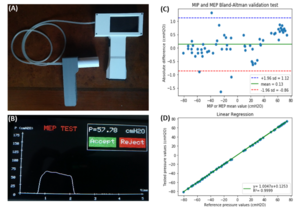
Respiratory diseases pose an increasing socio-economic burden worldwide given their high prevalence and their elevated morbidity and mortality. Medical devices play an important role in managing acute and chronic respiratory failure, including diagnosis, monitoring, and providing artificial ventilation. Current commercially available respiratory devices are very effective but, given their cost, are unaffordable for most patients in low- and middle-income countries (LMICs). Herein, we focus on a relatively new design option—the open-source hardware approach—that, if implemented, will contribute to providing low-cost respiratory medical devices for many patients in LMICs, particularly those without full medical insurance coverage. Open source reflects a set of approaches to conceive and distribute the comprehensive technical information required for building devices. The open-source approach enables free and unrestricted use of the know-how to replicate and manufacture the device or modify its design for improvements or adaptation to different clinical settings or personalized treatments. We describe recent examples of open-source devices for diagnosis/monitoring (measuring inspiratory/expiratory pressures or flow and volume in mechanical ventilators) and for therapy (non-invasive ventilators for adults and continuous positive airway pressure support for infants) that enable building simple, low-cost (hence, affordable), and high-performance solutions for patients in LMICs. Finally, we argue that the common practice of approving clinical trials by the local hospital ethics board can be expanded to ensure patient safety by reviewing, inspecting, and approving open hardware for medical application to maximize the innovation and deployment rate of medical technologies.
See also[edit | edit source]
- Open source surgical fracture table for digitally distributed manufacturing
- Maximizing Returns for Public Funding of Medical Research with Open-source Hardware
- Economic Potential for Distributed Manufacturing of Adaptive Aids for Arthritis Patients in the U.S.
- 3-D printing open-source click-MUAC bands for identification of malnutrition
- Distributed Manufacturing of Flexible Products- Technical Feasibility and Economic Viability
- Quantifying the Value of Open Source Hardware Development
- Low-cost open source ultrasound-sensing based navigational support for visually impaired
- Open-Source Medical Hardware for Pandemics
- Open-Source Three-Dimensional Printable Infant Clubfoot Brace




